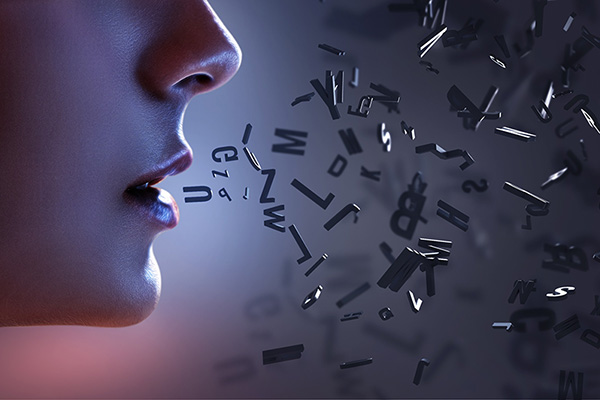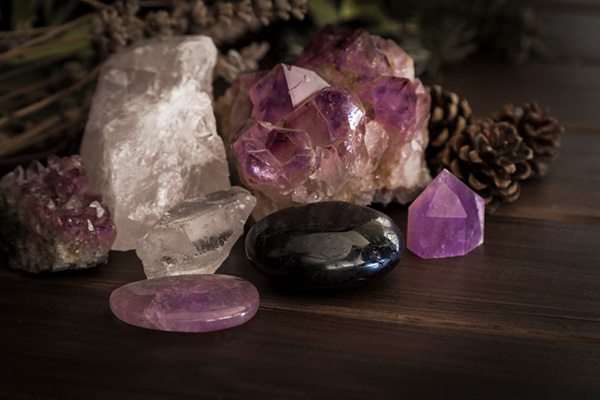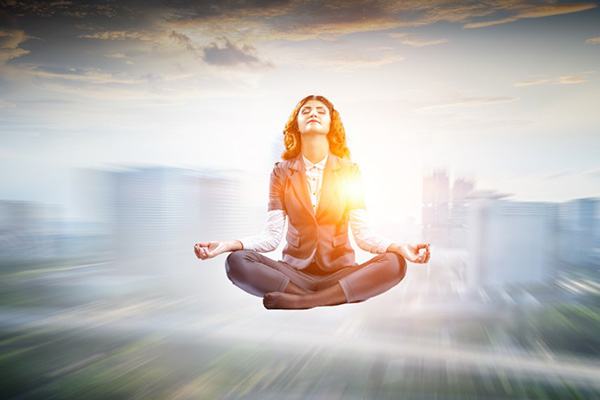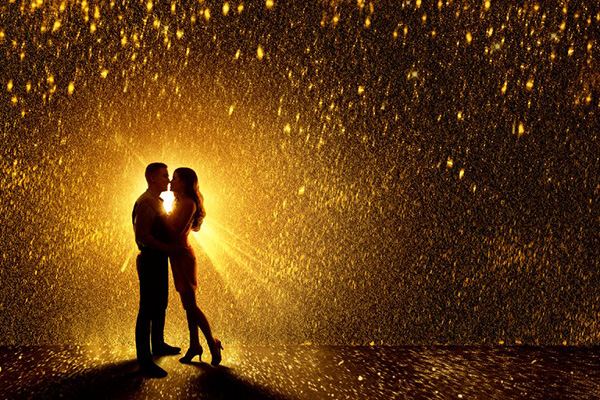Empower Your Life With Affirmations
 Affirmation is a great self-empowerment tool for deliberate manifesting, personal transformation and self-healing. It is a simple, yet powerful spiritual practice to focus on what we wish to create and attract, and make the changes we wish for in ourselves and our life.
Affirmation is a great self-empowerment tool for deliberate manifesting, personal transformation and self-healing. It is a simple, yet powerful spiritual practice to focus on what we wish to create and attract, and make the changes we wish for in ourselves and our life.
An affirmation is an affirmative, positive statement or mantra that you repeatedly speak, preferably daily. Words or language have metaphysical power. By thinking, speaking, and writing affirmative mantras, slogans, chants, spells, invocations, or prayers we set powerful intentions for transformation and manifestation. Here are some examples:
I lоvе and ассерt myself.
I fully believe in myself.
My potential is limitless.
I am achieving greatness.
My body is healthy and strong.
My mind is powerful.
I have control over my thoughts and feelings.
I am happy and fulfilled.
Affirmations reframe and improve our thinking. It reconstructs our negative thought patterns and rewires our mind to become more positively focused. The more we repeat it, the more it creates neural pathways for positive thought. These empowering new pathways gradually replace our old, negative thoughts habits.
How To Access Universal Flow
 In the spiritual community it is often said that one must aim to constantly be in ‘universal flow,’ but what does it actually mean? And how can one achieve this state of ‘flow?’
In the spiritual community it is often said that one must aim to constantly be in ‘universal flow,’ but what does it actually mean? And how can one achieve this state of ‘flow?’
If you personally haven’t experienced this, I can assure you it truly is as amazing as you may have heard it described. It is a blessed state in which opportunities flow in effortlessly, and joy, connection and well-being abound.
Being in flow gives us access to wisdom and understanding in a way we just don’t see when we aren’t riding that divine wave. It feels like one is prepared for absolutely anything in life!
But what exactly is universal flow, and how can you tap into it?
‘Universal flow’ means you are tapped into the divine guidance that is always available to us, and you are in alignment with your path, purpose, and the divine flow of the creative life force. It means that you are tapped into this flow of sacred energy and allowing it to guide your choices and your perception. It is a surrender to the benevolent will of God, Source, Spirit, the Divine, and coming into alignment with to the limitless flow of abundance and well-being in the Universe.
In this state of allowing, the right people, opportunities, and resources can flow into your life, for you to access and make use of as needed. It can provide you with everything you need to manifest your dreams and fulfill your purpose.
The Ideal Starting Crystals For Beginners
 Crystals and gemstones are a popular resource in modern metaphysical practices, mysticism, and alternative spirituality. It can be used in various powerful ways, including healing, energy protection, meditation, prayer, manifesting, divination, psychic reading, and channeling.
Crystals and gemstones are a popular resource in modern metaphysical practices, mysticism, and alternative spirituality. It can be used in various powerful ways, including healing, energy protection, meditation, prayer, manifesting, divination, psychic reading, and channeling.
Crystals are versatile and useful in enhancing one’s spiritual practice or energy work, but there are so many to choose from that it can difficult to know where to start.
Three of my favorite crystals that I recommend for beginners to get started with are amethyst, rose quartz and black tourmaline. These three crystals are affordable and easy to find, so they are ideal to start with if you wish to explore using crystals to expand your spiritual practice.
Amethyst
Amethyst is the ideal stone to start with because it has a gentle energy that almost anyone can tolerate without being overwhelmed by its influence. It is a fantastic stone to help you get in touch with your intuition and find your calm center. Amethyst’s calming energy especially enhances meditation and dreamwork.
Amethyst is associated with the crown chakra. It heightens our spiritual and personal awareness, which in turn helps us to self-reflect and evaluate more honestly where we need to make adjustments in our beliefs, behavior, and perspectives. Amethyst thus supports us in maintaining clarity in our self-reflection, which is a vital first step in a spiritual journey of higher consciousness and personal enlightenment.
How To Develop Your Intuition
 We all have access to spiritual inner guidance in the form of our intuition, and the more we pay attention to it, the stronger it will become. Intuition is like a muscle, so the more we develop it, the stronger it becomes.
We all have access to spiritual inner guidance in the form of our intuition, and the more we pay attention to it, the stronger it will become. Intuition is like a muscle, so the more we develop it, the stronger it becomes.
The following strategies can help to hone your intuitive abilities and learn to better listen to your powerful ‘sixth sense.’ Use these strategies to help you to tune into your inner wisdom and develop your relationship with your intuitive guidance. Intuition is a soul awareness that we are all born with and the more we engage with it, the stronger it will become for us.
Awareness
Intuition is a very low key, subliminal form of awareness. It is not highly charged like our emotions tend to be, and so it can easily go unnoticed.
Intuition for people who are less aware usually is only noticed when it presents as an uneasy sensation or a foreboding feeling. It can be difficult to put your finger on exactly what the sensation or feeling is. Intuition can also be a ‘knowing’ without any sensation or feeling.
The first step to begin working with your intuition is to pay more attention to it! So, when you have that tell-tale sensation or subtle feeling, or that vague sense of knowing, focus on being more present with it. Ask yourself questions about what you are experiencing.
For example, if it’s a knowing, does it come with any other sensations or feelings in your body? If so, where do you sense it in the body? What does it feel like? Emotions tend to be very pronounced and charged.
The Karmic Lessons Of Soulmate Relationships
 What really happens when we meet someone whom we instantly feel a deep connection with? There is an intense ‘spark,’ or the other person somehow feels very familiar as if we have always known them. We just feel very drawn to them, or it feels like it is ‘meant to be.’ But is it truly fate or destiny, or is it just free will?
What really happens when we meet someone whom we instantly feel a deep connection with? There is an intense ‘spark,’ or the other person somehow feels very familiar as if we have always known them. We just feel very drawn to them, or it feels like it is ‘meant to be.’ But is it truly fate or destiny, or is it just free will?
Well, it is both. Such a person usually comes into our life bearing the gift of a karmic lesson! This is related to fate, and soul contracts. Certain people are ‘fated’ to come into our lives, but whether we choose to let them walk beside us, and in what capacity, is almost always ruled by free will and influenced by which lessons we are currently working on integrating. With these people we typically share what is known as a soul contract or soul agreement, and often they are part of our soul family or soul group.
So, it is indeed ‘meant to be’ with these people…but, with a big but. We must be very careful what we wish for and remember that we also have free will, as do they. Just because something is ‘fated’ or ‘meant to be,’ doesn’t mean it’s something either of you want.
While the idea of us having a predetermined fate or predestined life path can seem like a comforting, convenient and safe concept, ‘meant to be’ does not always equate to ‘easy,’ ‘fun,’ or ‘pleasant.’ It is about the experiences we signed up for in coming here, and some of us have chosen some very challenging karmic lessons for this lifetime. Beware, karmic lessons are often difficult and really challenging!
What we learn from these people can transform our lives and boost our soul growth in profound ways, but just because something is destined or ‘meant to be,’ doesn’t mean it will necessarily be a pleasant or easy experience.


